Presidential initiatives improve access to high quality healthcare
Health insurance to cover entire nation by 2032
Since assuming responsibility for running the country in June 2014, President Abdel Fattah El Sisi has set the priorities of the 2030 strategy including concern for health.
The health sector in Egypt has witnessed a real boom during the past seven years, despite the coronavirus pandemic.
The government increased health spending for 2020-2021 to LE258.5 billion, marking an increase of 46 per cent on last year’s budget.
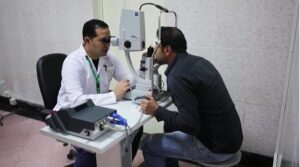
Cost of treatment at state expense was up 6 per cent to LE7 billion in 2020-2021, compared to LE6.6 billion in 2019-2020.
The president has launched a set of health initiatives worth a total LE16.3 billion to provide medical services throughout Egypt in line with the highest international standards. The Ministry of Health has also been digitised.
Local vaccine production
Close to producing the first Chinese Covid-19 vaccine in Africa, Egypt could well become the manufacturing hub for coronavirus vaccines for the rest of Africa.
In fact, Egypt is the only country in the African continent after South Africa to manufacture a Covid-19 vaccine.
This development is a significant step towards increasing Africa’s ability to produce vaccines locally in a bid to reduce imported treatments.
The Egyptian Holding Company for Biological Products and Vaccines (VACSERA) said it plans to manufacture 40 million doses of Sinovac-Vacsera in its first year.
Egypt aims to vaccinate 40 per cent of its population by the end of 2021.
Health Minister Hala Zayed said about five million doses of the vaccine will be produced within two months and exported to the Middle East and Africa after the country has met its own needs.
On April 22, Egypt’s leading Pharmaceutical Company Minapharm said it would produce over 40 million doses of Sputnik V vaccine per year, as per an agreement with the Russian Direct Investment Fund (RDIF).
The agreement to produce the world’s first registered vaccine against the Covid-19 disease also includes Minapharm’s Berlin-based subsidiary ProBioGen AG.
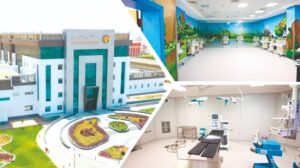
Global institutions hail anti-Covid efforts
The International Monetary Fund (IMF) has lauded the swift measures taken by Egypt to cushion the health and economic impacts of the coronavirus pandemic.
“We see that Egypt is making substantial efforts to control Covid-19 outbreak. Significant work is being done, especially in the areas of early detection, laboratory testing, isolation, contact tracing and referral of patients,” said Yvan Hutin, director for communicable diseases in WHO’s Regional Office for the Eastern Mediterranean.
Eric Oechslin, director of the Cairo Office of the International Labour Organisation (ILO), has hailed Egypt’s efforts to combat the coronavirus pandemic under the directives of President Abdel Fattah El Sisi.
Health insurance for all
Seven years ago, the government sought to provide health services and rebuild the healthcare infrastructure to ensure treatment services as per international standards for all Egyptians, hence the national health insurance system.
President Sisi launched the new health insurance system in six governorates: Port Said, Luxor, Ismailia, Aswan, Suez and South Sinai. Another six governorates will be covered in the first phase by the end of 2021.
The LE4.2 billion scheme is to cover the entire country by 2032.
Thirty hospitals and 220 medical facilities are being upgraded in Aswan, Ismailia and Luxor.
The medical health insurance system will cover surgery, analysis, radiology, tumor treatment, organ transplants, prosthetic devices, visual and audio aids, dental treatment, therapeutic foods and other supplements, using the latest treatments and internationally approved medicines.
The cost of implementing the new health insurance system in the four governorates of Port Said, Luxor, South Sinai, and Ismailia is estimated at LE23 billion, of which LE10 billion has been earmarked for improving the infrastructure, medical and non-medical equipment in Ismailia, LE9.6 billion to upgrade medical facilities in Luxor, and LE3.3 billion in South Sinai.
A health insurance pilot scheme is planned for five hospitals and 27 clinics in South Sinai and eight hospitals and 27 health centres in Suez in mid-December prior to the official launch in March.
The system was first introduced in Port Said in August 2019 in 11 hospitals and 32 medical units. It is being introduced gradually in all the 27 governorates until 2032.
The public have been registering on the system since October 2019. The new health insurance began in July 2020.
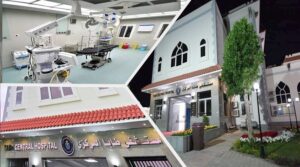
Decent Life initiative
President Sisi launched the “Decent Life” Initiative to develop health facilities and hospitals in compliance with standards of the health insurance system to provide medical services in 1,400 villages nationwide in line with Egypt’s Vision 2030.
President Sisi also launched the Nour Hayat (Light of Life) initiative in January 2019. The Tahya Misr (Long Live Egypt) Fund contributed LE1 billion to implement the initiative within three years to treat eye diseases. Some 5 million elementary school students in addition to 2 million needy people nationwide benefited from the initiative.
Under the initiative, one million prescription spectacles will be available and 250,000 eye operations will be performed.
Breast cancer screening, treatment
Up to 12.5 million women have been screened and 3,000 women have been treated for breast tumours.
Meanwhile, 24 cancer centres across the country have been refurbished or set up and the most up-to-date treatment protocols have been developed.
During Egyptian Women’s Day celebrations in March this year, President Sisi proposed a breast cancer fund after he and the health minister looked into the possibility of screening and treating women nationwide.
The minister of health said breast cancer was the second cause of death among Egyptian women.
The president’s Early Detection of Chronic Diseases and Nephropathy initiatives have helped the elderly and those with chronic diseases, as they were launched with free treatment for 25 million people.
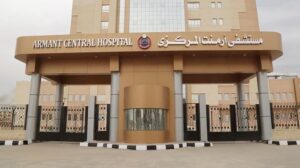
Putting end to waiting lists
Minister of Health Hala Zayed announced the completion of 835,345 surgeries, as part of the July 2018 presidential initiative to end waiting lists at a cost of LE6 billion.
President Sisi said eliminating waiting lists had helped reduce the death rates during the Covid-19 pandemic. He added that nationwide health initiatives are to alleviate suffering.
Obesity, anemia awareness campaigns
The Health Ministry launched a media campaign on obesity as part of President Sisi’s ‘100 million healthy lives’ initiative, which will continue until 2022.
Detecting anemia and stunting diseases is part of the initiative that was launched in November 2018 to screen 9.7 million children and provide free treatment, in addition to educating children about obesity.
The aim is to cover nearly 29,500 public and private schools nationwide until the end of the school year. More than 7 million students were examined during the first semester of the current academic year.
Eliminating virus C
Egypt screened 35 million people for hepatitis C virus (HCV) between October 2018 and March 2019, in a national campaign to supercharge the response to viral hepatitis.
The campaign, launched in October 2018, also included diagnosing non-communicable diseases (NCDs) – diabetes, high blood pressure and obesity.
Health Minister Zayed said the initiative to eliminate virus C had found 70 million people with the virus and that Egypt had zero infections by 2020, saving LE64 billion spent annually on treatment.
International reports highlighted Egypt’s role in eliminating virus C, adding Egypt has become a role model in this regard, as the initiative prevented the infection of 150,000 cases annually.
Plasma derivatives
Egypt is set to be one of the few largest manufacturers of plasma derivatives in the world with the participation of the Arab Company for Drug Industries and Medical Appliances (ACDIMA) as a major shareholder alongside a Korean company, and the National Investment Bank.
Ambulance service upgrade
Meanwhile, the ambulance system nationwide has been upgraded and new ambulance stations were set up at a cost of LE846 million.
The Ministry of Health recently has provided ambulance services on the new highways and axis roads with 400 vehicles costing LE402.5 million. The river ambulance headquarters have also been improved and boasts a speed ambulance worth LE1.2 million.
Gypto Pharma City
In April this year, President Abdel Fatah El Sisi inaugurated Gypto Pharma City spanning over 180,000 square metres, and consisting of plants that manufacture sterilised medicines, non-sterilised medicines, solid medicines, cancer treatment products, and medical equipment.
This project aims to provide medicines with the latest international technologies at reasonable prices.
Gypto Pharma, part of Egypt’s ongoing health and medical care initiatives, includes 15 production lines manufacturing all kinds of drugs. Its production capacity will hit around 150 million packages of medicines annually.
Gypto Pharma seeks to co-operate with national and international companies and to open export horizons to African countries, the Middle East, Arab countries, and Europe at a later time.



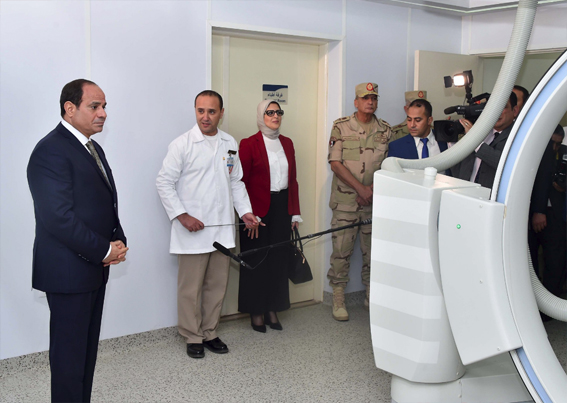


Discussion about this post